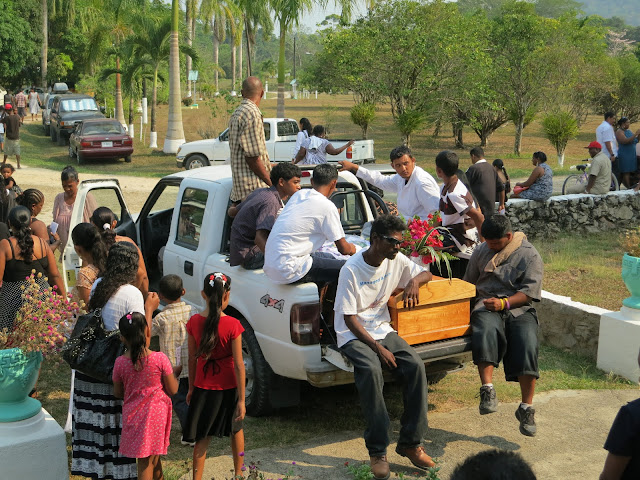Providing medical care in southern Belize, we definitely see medical illnesses that we don't usually see in the U.S. Varicella (chickenpox) is one of them. We have seen sporadic cases in children since we have been here but there has been an outbreak recently, particularly in the distant villages. They do not immunize children for varicella here and we have seen cases in all ages. One of our Belizean staff members, Victor, was even out for a couple of weeks due to the virus. Fortunately, even though we have seen infants and older adults with it, we have not seen any complicated cases.

There is a lot of suffering here that you rarely see in the U.S. We are so used to expecting that all of our symptoms will be controlled. There is no anesthesia available like epidurals for childbirth. There is very little access to narcotics here and so Tylenol and Ibuprofen are the mainstay for pain control. These work fine most of the time; however, for conditions like advanced arthritis, cancer and post-operative pain, it hardly seems adequate. We purchased some tramadol (Ultram) from the U.S. and had students bring it down. This has helped multiple people but there are times you feel like you cannot truly help relieve their suffering. There are multiple patients with severe osteoarthritis of the knees who in the U.S. would have had a joint replacement, no questions asked, but that is not an option here. Right now we have a patient who has advanced breast cancer with bone metastasis and we are concerned that we will soon not be able to control her pain.
So many people suffer with disease that presents at an advanced stage. We just lost an employee who we watched suffer for weeks before he died, James. He presented with pain in the right side of his chest. Initially it seemed musculoskeletal but he had lost 10 lbs. As soon as the x-ray machine was functioning again in Punta Gorda, we sent him for a chest x-ray. It was shocking to see that his whole upper part of his right lung was obliterated by tuberculosis and it was spreading into his ribs. He was started on medication for TB but despite tramadol, his pain was severe. He continued to lose weight and had frequent fevers and night sweats. We were really helpless to do more to alleviate his suffering.




